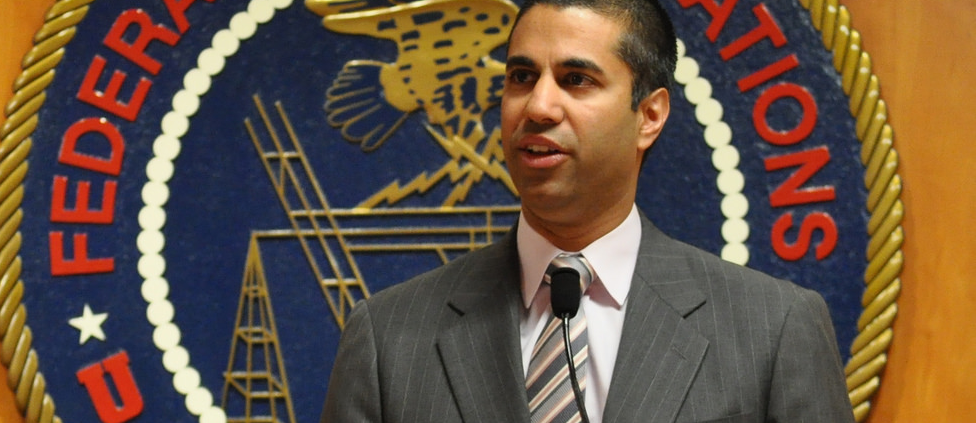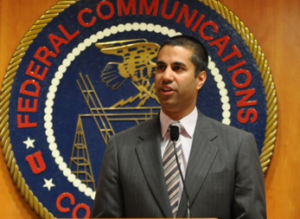Net Neutrality Battle Lines, App Subsidies, and Health Insurance for All
Here’s What You Need To Know
The debate over net neutrality is not a new one, but it is about to become one of the biggest policy fights in Washington with new FCC Chairman Ajit Pai holding views in diametric opposition to the previous Chairman and net neutrality champion, Tom Wheeler.
How this fight shakes out will have huge ramifications on the telecommunications industry and which companies succeed in the coming years.
- The Battle Lines Are Drawn: On Capitol Hill, the division is fairly straight forward and partisan. Republicans have long opposed net neutrality measures and Democrats almost universally support the policy. And while much of the telecommunications industry opposes the policy, a few of the sector’s largest companies are poised to fight to protect the regulation. Comcast and Charter are both bound to operate under the terms of net neutrality, until 2018 and 2023 respectively, as conditions of their recent mega-mergers. Both companies will seek to oppose or delay net neutrality reforms for the rest of the industry in an effort to ensure their competitors are forced to operate under the same regulatory burden they do.
- Pai’s First Strike: Last week, Pai took his first real step as FCC Chairman to rein in regulations associated with net neutrality. He ordered closed an investigation into zero-rating practices of top wireless providers: AT&T, Verizon, and T-Mobile. Zero-rating is the practice of offering free streaming or downloads that do not count against limits on the amount of data a consumer can download. Previous FCC leadership had considered this a potential net neutrality issue, because by only offering this service for particular video providers, the practice could put competing video providers at a disadvantage. Pai dismissed these concerns and argued zero-rating was popular with consumers, especially those in low-income households. Regardless, the move quashed what could have been a major ruling in the expansion of net neutrality.
- The Next Move: Going forward, the first question is whether Pai will enforce net neutrality rules at all or if they will simply become unenforced until they can officially be taken off the books. He has already declared he and his fellow Republican Commissioner Michael O’Rielly will not punish small internet service providers (ISPs) for violations of the net neutrality order’s “enhanced transparency” rules that require ISPs to provide detailed information on the plans they offer and their network performance. More recently, Pai refused to say whether he would or would not enforce other components of the net neutrality order. Whether Pai moves quickly to undo net neutrality from the FCC or not, Congressional Republicans have already been fighting to roll back the measure with legislation, which will no doubt be more successful with an FCC that will not defend the rule.
For more analysis on the upcoming policy changes coming out of the new Administration be sure check out The Administration Project and subscribe for our weekly insights.
Subscribe to Receive Insights
"*" indicates required fields
News You Can Use
SUBSIDIES FOR APPS OF THE ELITE
While ubiquitous apps of the urban elite – like Uber, Blue Apron, Evernote, and Zeel – seem like they must be making money hand-over-fist, the little-known reality is that each of those companies are being heavily subsidized by pension funds who are invested in the venture capital firms backing the apps. The focus for these app businesses has been major metropolitan areas with urban elites who have the disposable income for such on-demand luxuries, allowing for a large enough user base to make these services economically viable. All the while, the pension funds of the Americans least served by these new services are backing the big VCs, effectively subsidizing the apps of the elite. Alternatives to this vicious Silicon Valley cycle of elites funding apps made by other elites for elites – often with the retirement funds of the working and middle class – have been offered by other funds including AOL co-founder Steve Case’s Rise of the Rest Initiative and investment fund Village Capital. While these types of funds seek to put money behind startups and entrepreneurs in middle-class America outside the traditional startup structure, this strange subsidized app reality continues to be the norm.
VOTER FAX
Online fax services like HelloFax and FaxZero have noted an uptick in users over the past few weeks, as voters are apparently using the old technology to petition their elected officials. After attempting to contact legislators’ Washington DC offices by phone, many citizens found their calls unanswered – either being ignored or left on hold due to overwhelmed Congressional staffers – and so they moved on to the offices’ fax lines. Activists seem to think faxing elected officials could have a greater impact by providing a physical item for officials or staffers to have to deal with. But, congressional staffers point out faxes are actually one of the least impactful communications because they come in as email attachments in most offices. It remains to be seen if this “new” tactic actually yields any results, though that doesn’t seem likely.
GORSUCH OPPONENTS DIGGING DEEP FOR ATTACKS
After President Trump announced Judge Neil Gorsuch as his nominee to the U.S. Supreme Court, every facet of his record was immediately part of the messaging for or against his confirmation, including things as seemingly mundane as a high school yearbook. As a student at the prestigious Georgetown Prep School, Gorsuch joked in his yearbook that he had served as President and Founder of the “Fascism Forever Club.” While teachers and classmates all confirmed the line was obviously a joke, the fact that it was brought up in the first place just goes to show how in depth individuals are scrutinized during these types of public affairs fights.
VIZIO SETTING A BAD PRECEDENT ON PRIVACY
Last Monday, American TV-maker Vizio settled a lawsuit with the Federal Trade Commission and the New Jersey Attorney General’s Office over the company’s use of their smart TV technology for unauthorized collection of consumer viewing data. The announcement was accompanied by a statement from acting Republican FTC Chair, Maureen Ohlhausen, which outlined the first-of-its-kind complaint against the company for collecting second-by-second data on 11 million smart TV users without their consent. Vizio argued the data collection never paired viewing data with personally identifiable information. But, they still agreed to pay $2.2 million to the FTC and State of New Jersey while deleting all of what they collected. This is the first of potentially many cases dealing with data collection from new technologies.
FAKE NEWS EPIDEMIC IN THE REAL NEWS
Many in the media seem to view Donald Trump as their enemy (he certainly views them as his). But, the press are really their own greatest enemy when it comes to convincing the American people they are to be trusted. Since President Trump’s election, the media has been plagued by “fake news” reporting with stories that are later deemed to be untrue. Items like Time inaccurately writing about Trump’s removal of a bust of Martin Luther King Jr. from the White House, or a New York Magazine report on a false election hacking conspiracy theory, or a Yahoo News reposting of an AP report suggesting Trump was considering invading Mexico. These are just a few examples of the litany of times journalists have let their desire to fulfill a narrative about the new Administration to get ahead of the facts, which only serves to undermine their ability to be legitimate, trusted reporters of public policy and policymakers.
HOW EVERYONE CAN HAVE HEALTH INSURANCE
In a recent Washington Post op-ed, Lanhee Chen (director of domestic policy studies at Stanford University’s public policy program) and Tevi Troy (former deputy secretary of health and human services and currently chief executive for the American Health Policy) outlined how President Trump could deliver on his promise of “insurance for everybody.” They argue Obamacare’s key failure was to focus on access before cost, pointing out that Republicans support expanding the number of insured Americans but believe the path to that goal lies in measures aimed at keep costs low rather than simply targeting access directly. Chen and Troy propose market-based reforms to achieve universal coverage by expanding consumer-directed coverage arrangements, like health savings accounts, tailoring healthcare assistance programs to specific patient needs, and allowing the federal government to pave alternative pathways to private, tax-preferred coverage by allowing health plans to be sold across state lines. With these measures aimed at keeping the cost of health insurance low, Republicans could achieve universal coverage in an Obamacare repeal and replace bill.
Mark Your Calendar
Thursday, February 23 – Sunday, February 26: DNC’s Winter Meeting where a new Democratic Party Chair will be elected



